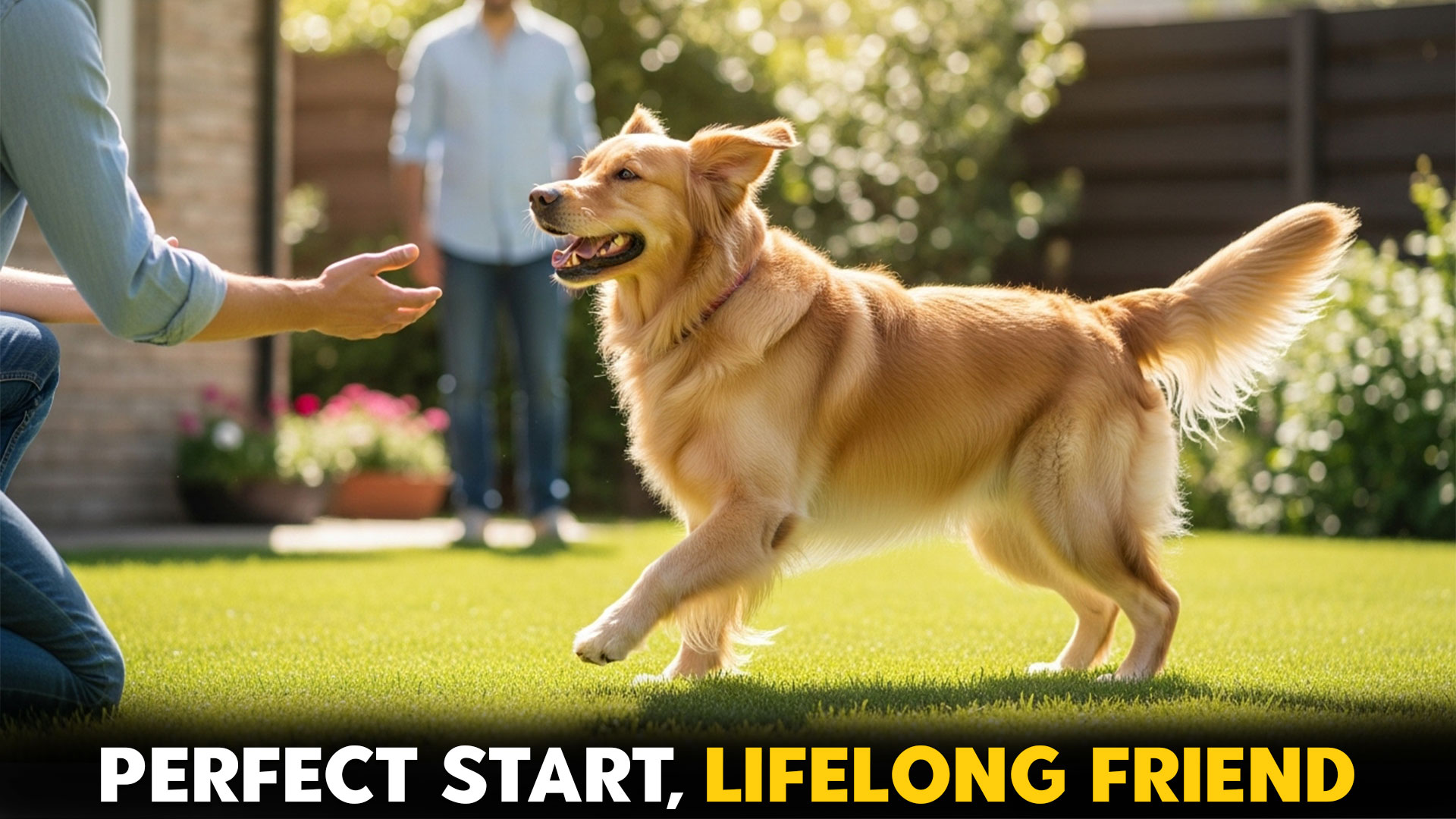Bringing home your first dog is an unforgettable experience — filled with excitement, curiosity, and just a touch of nervousness. For first-time dog owners, choosing the right breed can shape the entire journey. The best dog breeds for beginners are healthy, affectionate, and easy to train, helping new owners feel confident and connected from day one.
That’s why it’s important to look beyond appearances and think about your lifestyle, routine, and the kind of companion you hope to have.
Interestingly, a study by The Kennel Club found that more than half of new owners choose dogs based on looks or emotion — and many later discover they can’t meet all their dog’s needs. It’s a gentle reminder that love, while powerful, should go hand in hand with understanding.
When you choose a healthy dog breed that fits your lifestyle — supported by balanced nutrition, regular vet visits, and genuine care — you’re not just getting a pet; you’re welcoming a loyal dog who’ll fill your home with love, joy, and endless companionship.
Healthy Dog Breeds Great For First-Time Pet Owners
1. Labrador Retriever
The Labrador Retriever is one of the most beloved and popular dog breeds worldwide. Known for their friendly nature and eagerness to please, Labs are the perfect mix of loyalty, intelligence, and playfulness.
They thrive in active households that can give them plenty of outdoor time for walks, fetch, and swimming. Labs are great with children and other pets, making them ideal family companions.
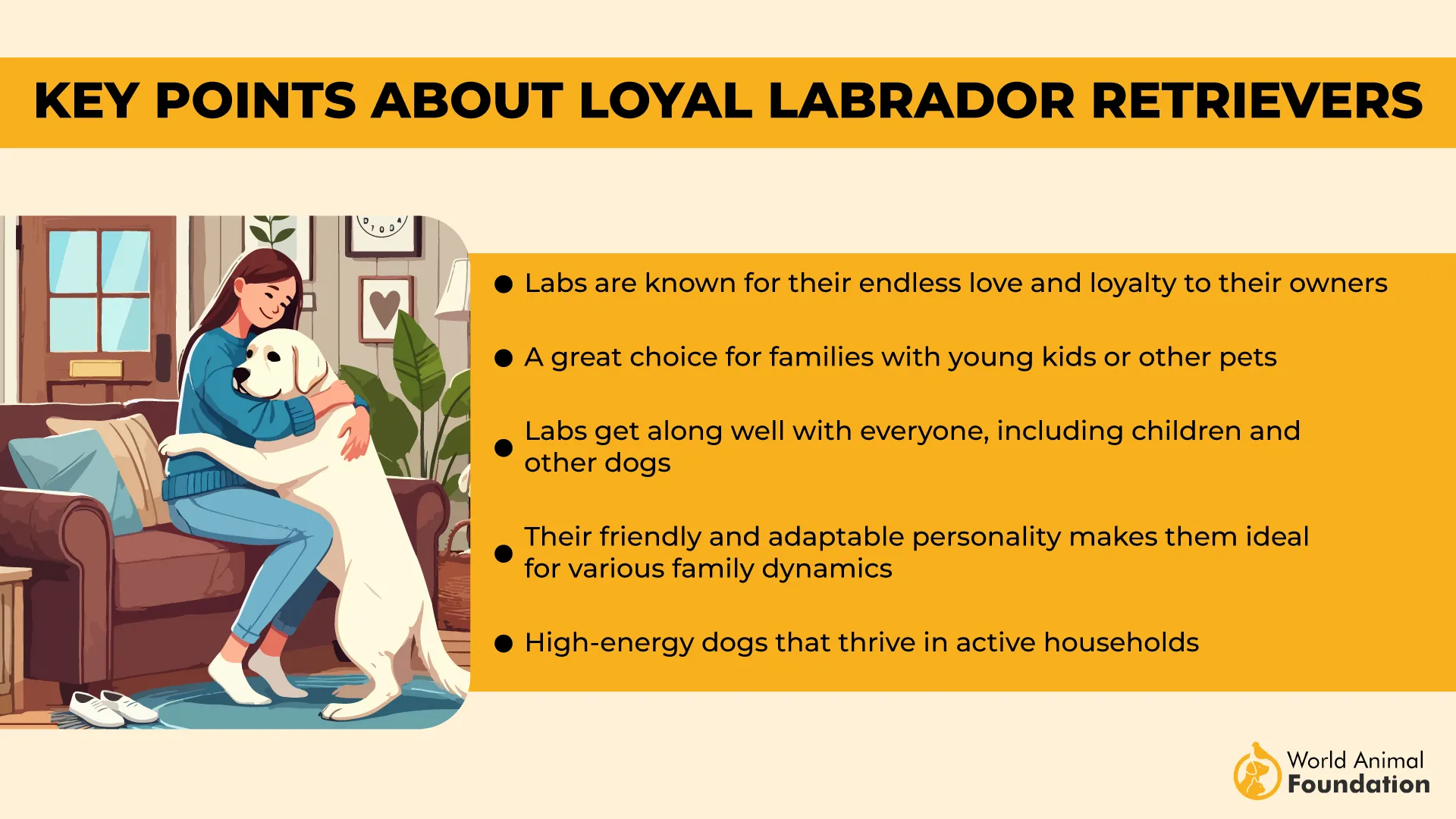
They’re also low-maintenance when it comes to grooming—regular brushing keeps their coats shiny and minimizes shedding.
Feeding & Nutrition Tips
Feed a high-quality, protein-rich diet to maintain muscle strength and energy.
Avoid overfeeding—Labs are prone to obesity, so watch portion sizes carefully.
Include omega-3 fatty acids for a healthy coat and joint support.
2. Golden Retriever
The Golden Retriever is suitable for first-time owners thanks to its affectionate personality and calm, gentle nature. With their signature golden coats and intelligent eyes, Goldens are loyal, patient, and easy to train—making them wonderful companions for families and singles alike.
As per AKC, they thrive on human interaction and love outdoor fun like swimming, long walks, and playtime. Regular exercise keeps their cheerful spirit balanced and their bodies fit.
Feeding & Nutrition Tips:
Golden Retriever puppies should eat a large-breed, high-quality puppy formula until they are 12–18 months old, as advised by your vet.
Transition gradually to a large-breed adult diet once mature.
Include omega fatty acids for coat shine and joint health.
Watch portion sizes—Goldens can be prone to weight gain.
3. Cavalier King Charles Spaniel
The Cavalier King Charles Spaniel is a loving, gentle, and easygoing breed—a great dog for first-time pet owners. Known for their affectionate nature and expressive eyes, Cavaliers bond closely with their families and get along beautifully with children and seniors alike.
They adapt easily to apartment living or larger homes and require only moderate exercise, like daily walks or short play sessions. Their silky coat grooming needs include regular brushing, but overall, they’re low-maintenance companions who thrive on love and attention.
Feeding & Nutrition Tips:
Cavaliers do best on a complete, balanced diet suited to their small size.
Choose small or toy-breed formulas—smaller kibble supports better digestion.
Maintain a healthy weight by avoiding overfeeding and limiting treats.
4. Papillon

The Papillon is a cheerful, intelligent, and adaptable small dog that fits perfectly into the lifestyle of first-time pet owners. Despite their delicate looks, these little dogs are surprisingly energetic and confident.
As per PetMD, they love joining family activities, learning new tricks, and curling up in your lap after playtime.
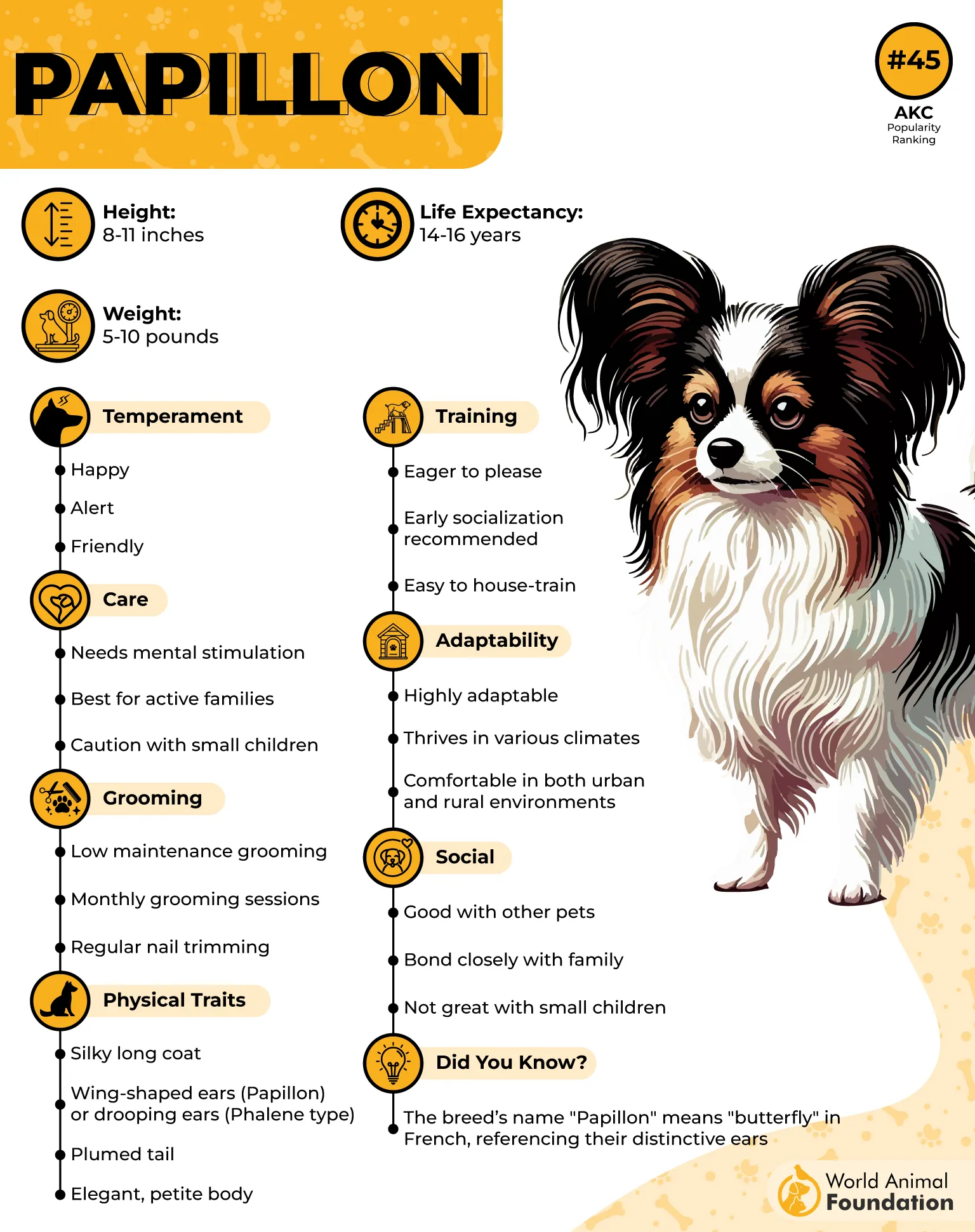
These intelligent dogs with an affectionate nature make training both enjoyable and rewarding. Regular grooming includes regular brushing that keeps their silky, feathered coat healthy and tangle-free.
Feeding & Nutrition Tips:
Choose a vet-recommended small-dog food to meet their energy needs.
Feed small, frequent meals—Papillon puppies can experience low blood sugar if they skip meals.
Always measure portions to prevent overeating and maintain a healthy weight.
5. Poodle
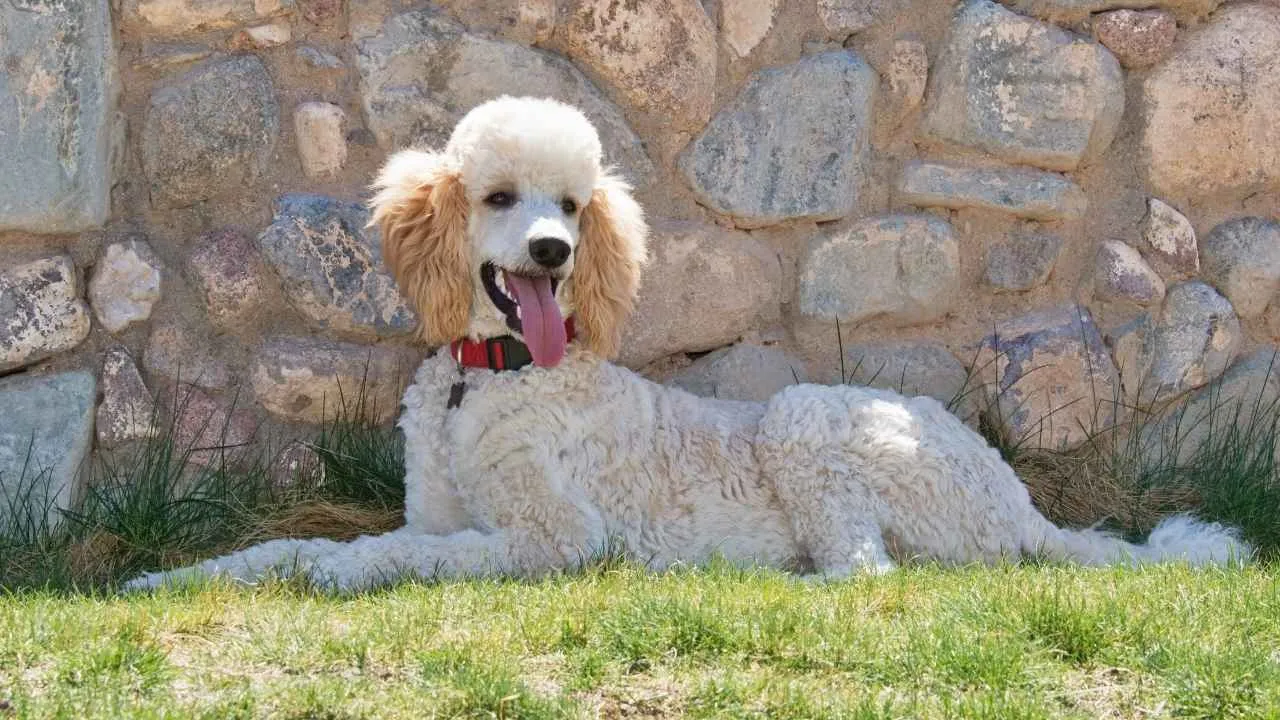
Poodles are intelligent, loyal, and energetic dogs that are perfectly suitable for first-time dog owners. Available in three sizes—Toy, Miniature, and Standard—this breed adapts easily to various living spaces and family types, as per WebMD.
These affectionate dogs with eagerness to learn make them relatively easy to train and a joy to have around. Regular playtime, walks, and mental challenges keep them happy and balanced. While their curly coat needs consistent grooming, it’s a small price for their beauty and charm.
Feeding & Nutrition Tips:
Choose a high-quality, balanced diet that matches your Poodle’s size and energy level.
For active Poodles, a sport or performance formula helps maintain stamina.
Avoid human foods and table scraps to support digestion and long-term dog’s health.
6. Shih Tzu

The Shih Tzu is a delightful and affectionate little companion, perfectly suited for new dog parents. Cherished for their sweet-natured personality and strong attachment to their families, these lovable dogs thrive on human interaction and enjoy being close to their owners.
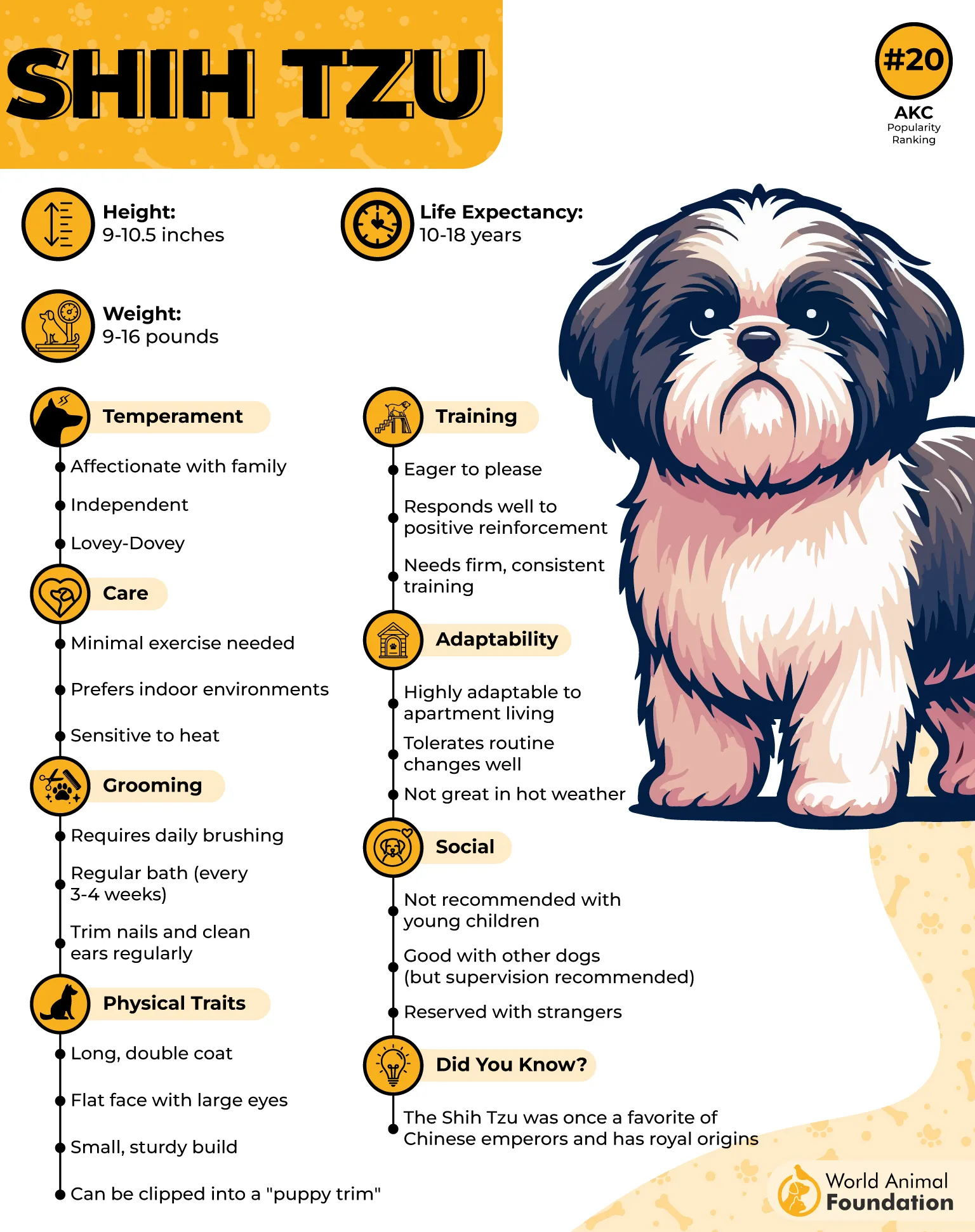
Though they descend from royal roots, Shih Tzus are relaxed and content with gentle walks and short play sessions indoors. Their long, silky coat needs moderate grooming, but they shed minimally, making them a great fit for tidy households.
However, because of their flat facial structure, they should be kept away from excessive heat and intense exercise; otherwise suffer from health issues.
Feeding & Nutrition Tips:
Opt for a high-quality small-breed formula that supports healthy skin and a glossy coat.
Offer measured, frequent meals to prevent overeating, as they can be prone to weight gain.
Ensure constant access to clean water and maintain a cool environment, especially during warmer days.
7. Greyhound
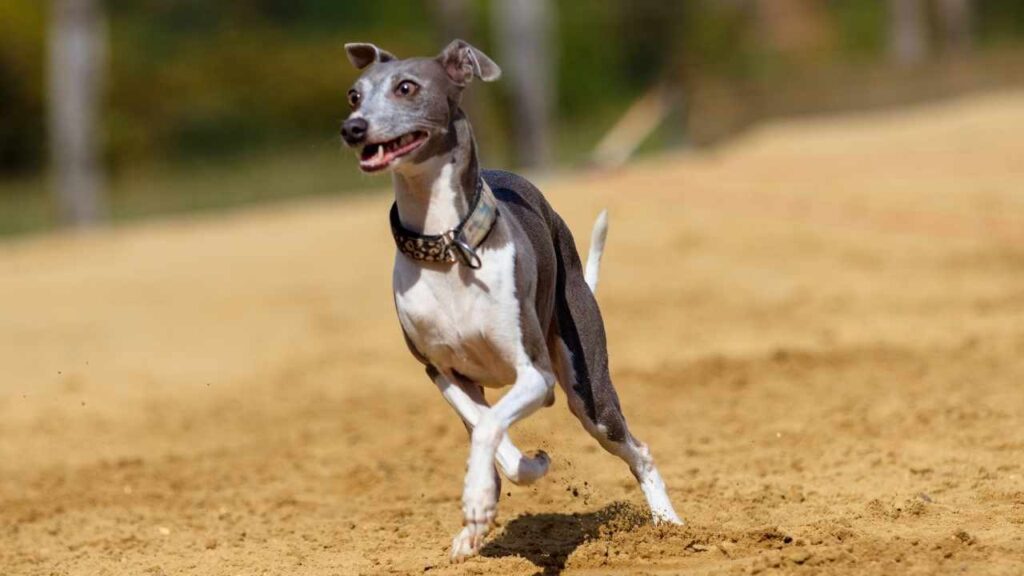
The Greyhound is a gentle, affectionate large dog breed that surprises many new dog owners with its calm and loving personality. Though known for their incredible speed, Greyhounds are actually low-energy indoors and adore curling up on the couch beside their favorite humans.
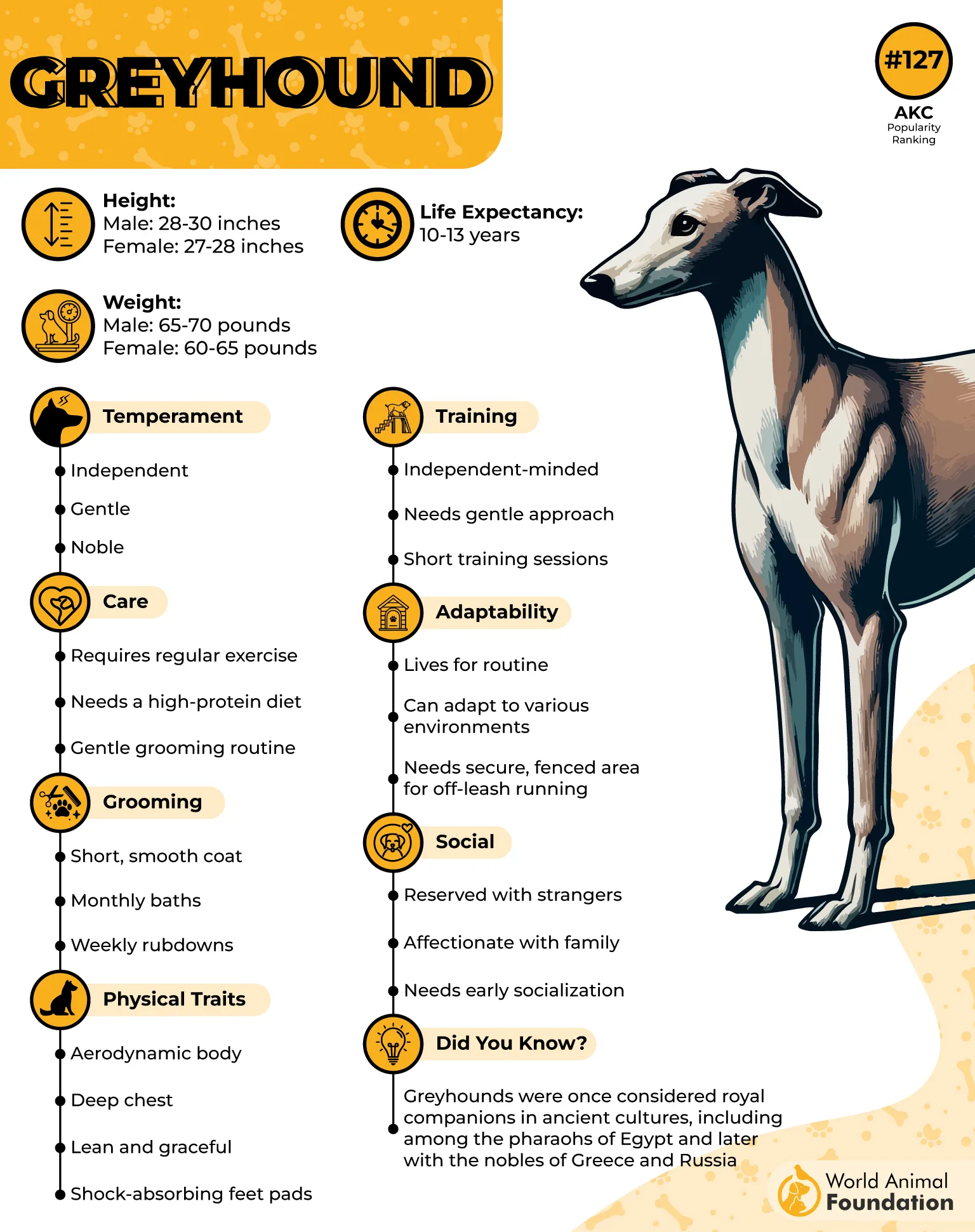
They do, however, enjoy daily walks or occasional sprints in a secure area to stay fit and content. Because they were once bred for hunting, it’s best to keep them in homes without small pets like rabbits or cats.
Feeding & Nutrition Tips:
Provide a high-protein, calorie-dense diet to support their lean muscles and active nature.
Choose age-appropriate food—puppy, adult, or senior formulas based on life stage.
Avoid overfeeding; Greyhounds maintain a naturally slim build and don’t need extra weight for good health.
8. English Springer Spaniel
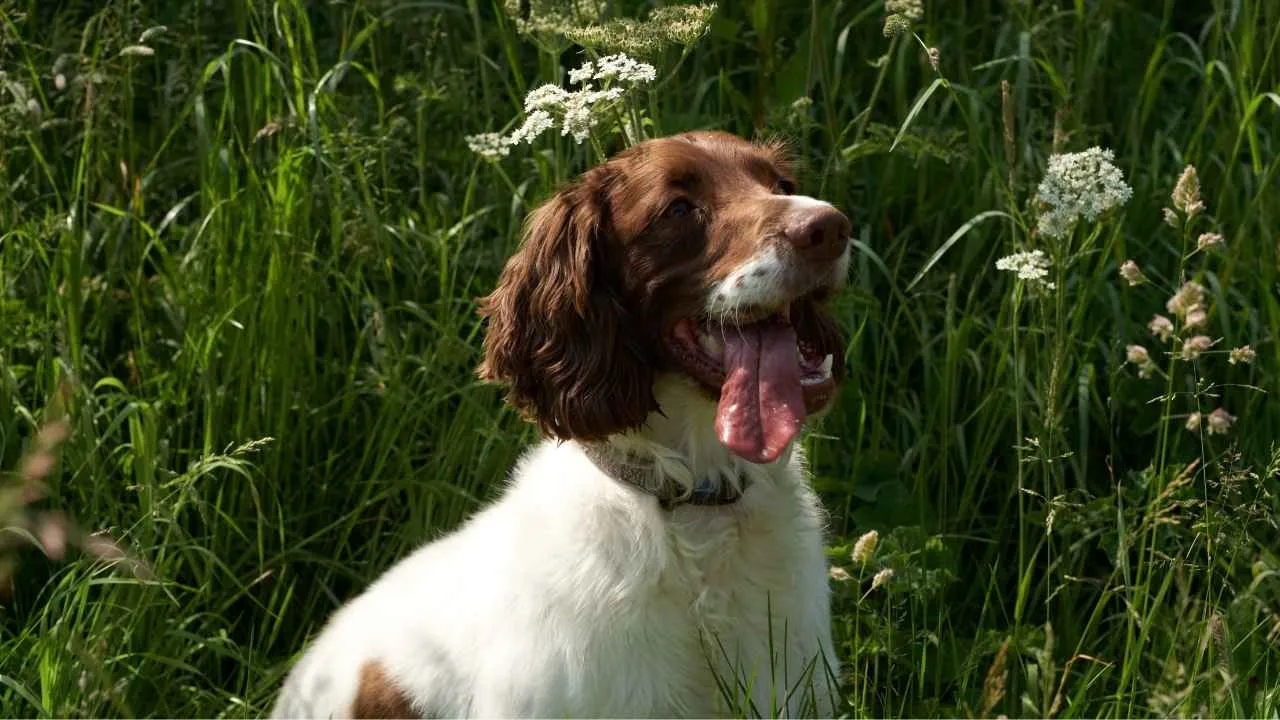
The English Springer Spaniel is an energetic yet peaceful breed that quickly wins over first-time owners with its eagerness to please and loving nature. Known as the ultimate “do-it-all” dog, the Springer thrives on staying active and involved in family life.
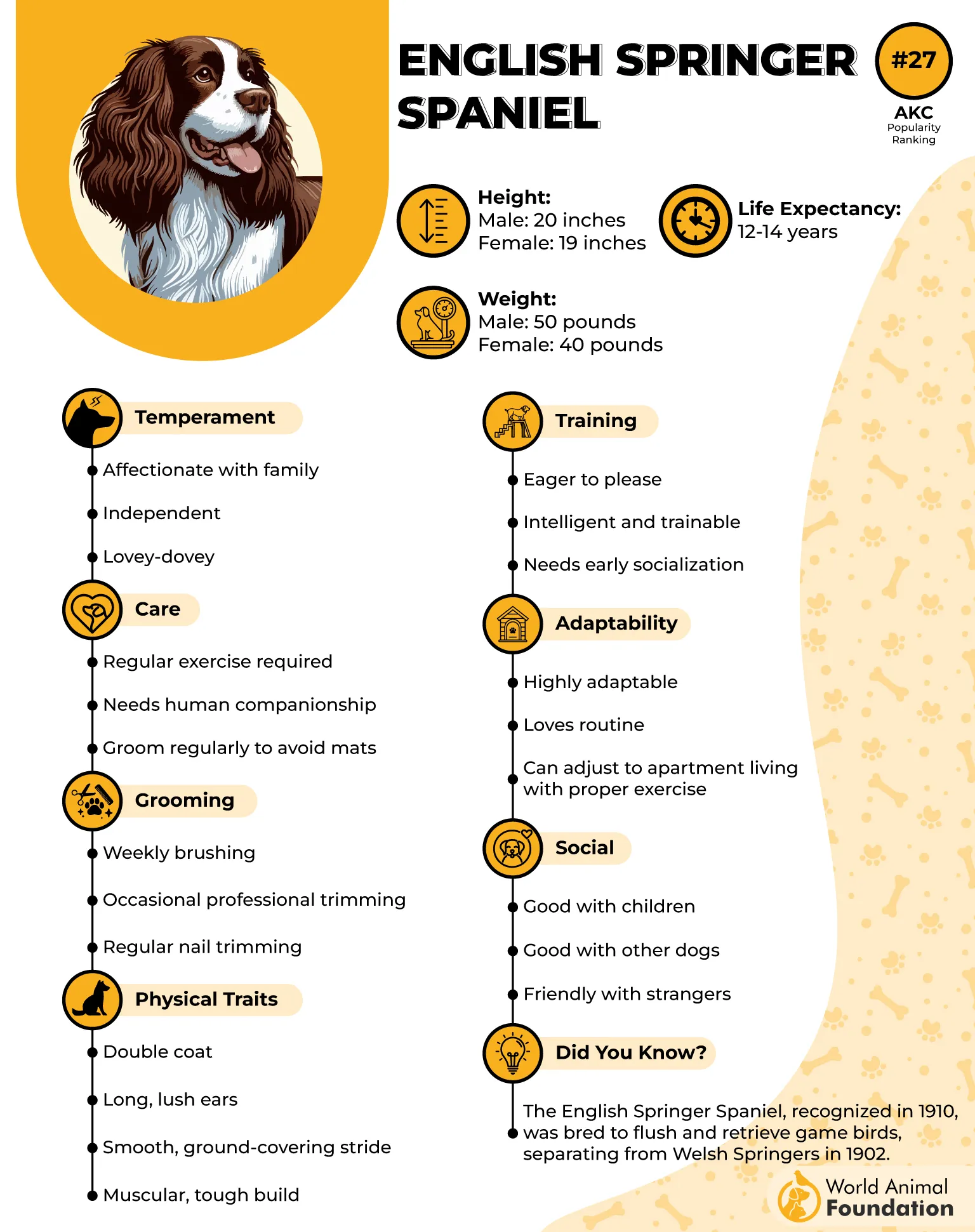
These dogs adapt well to different living environments, provided they receive enough exercise and attention. They love being around people and are happiest when included in daily routines.
Springers are highly intelligent and sociable dogs that enjoy both playtime and training sessions. Regular walks, games, and mental stimulation help them maintain their cheerful temperament.
Because of their friendly nature, they may bark to greet or engage—but they’re rarely excessive if their physical and emotional needs are met.
Feeding & Nutrition Tips:
Offer a nutrient-rich, high-quality diet suited for high-energy dogs to fuel their energy levels.
Feed puppies three times a day and transition to two meals daily as they reach adulthood.
Consider calorie-dense food if your Springer is highly active, and always consult your vet for portion guidance.
9. Whippet
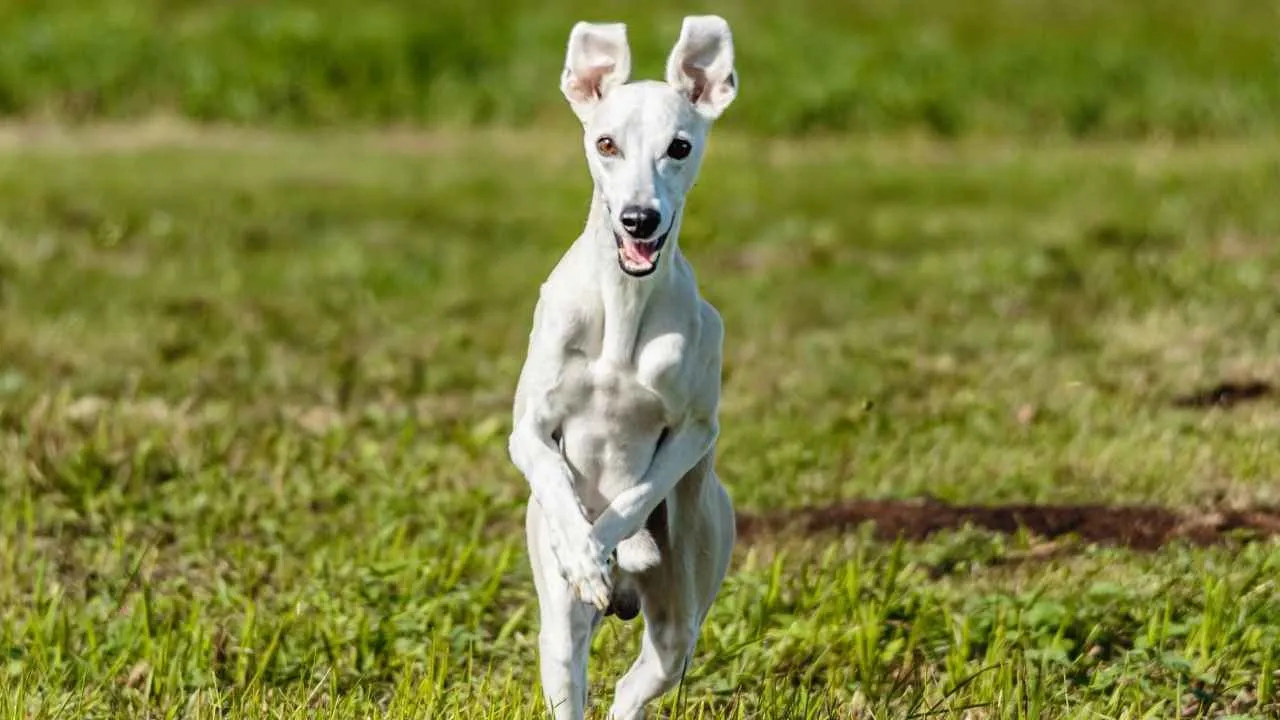
Whippets are a wonderful mix of gentle affection and quiet confidence. Known for their calm personalities, they usually bond easily with family members and other pets when socialized early.
These graceful dogs prefer peaceful homes and respond best to positive reinforcement training that includes treats, toys, and praise. Early socialization helps reduce shyness and builds their confidence around people and new environments, making them the perfect choice for new pet parents.
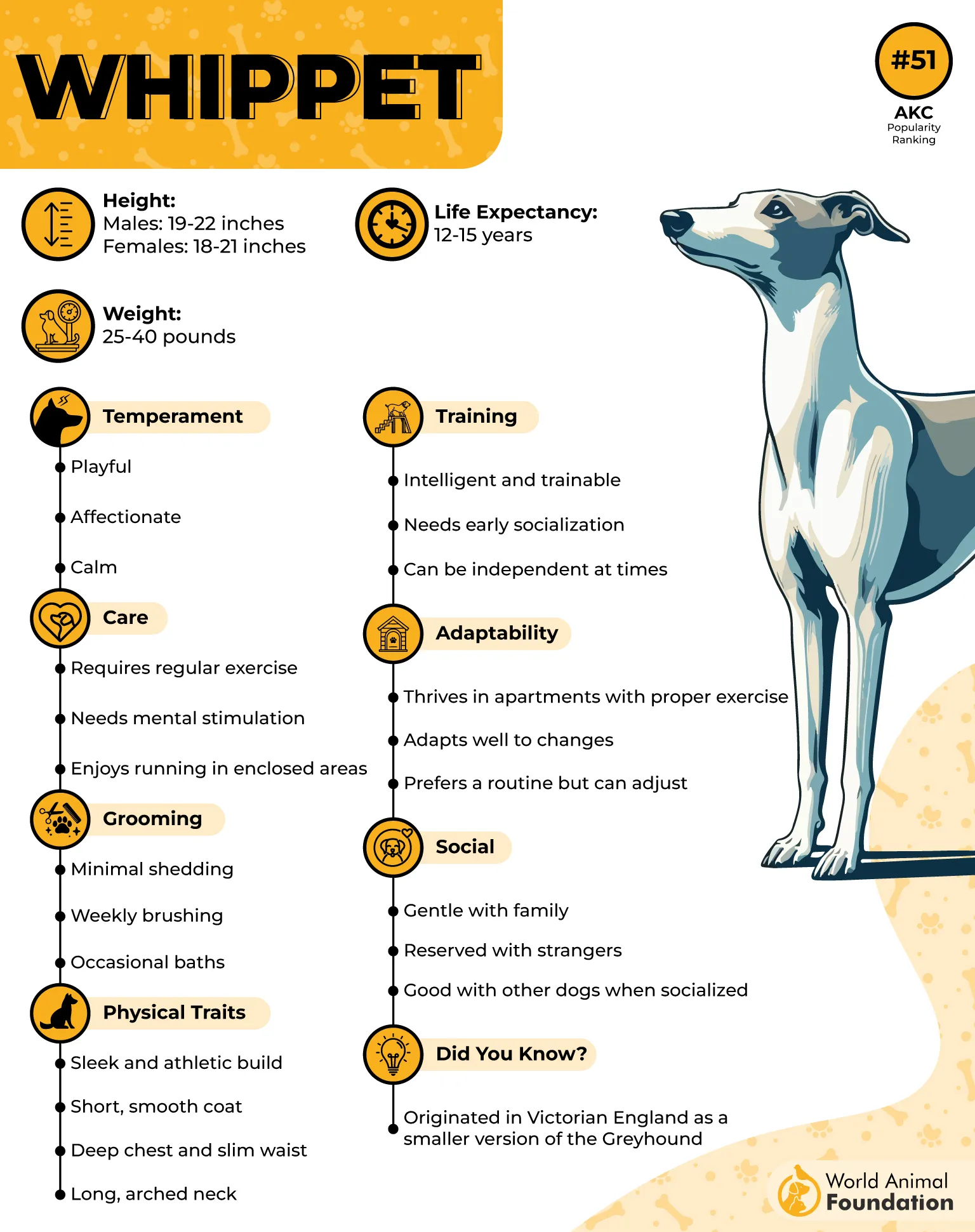
Feeding & Nutrition Tips:
Provide a balanced, AAFCO-approved dog food suitable for medium breeds.
Keep meals portion-controlled to avoid unnecessary weight gain.
Choose a high-protein, moderate-fat formula to maintain lean muscle.
Feed two smaller meals a day rather than one large serving.
Always provide clean, fresh water—especially after walks or playtime.
10. Yorkshire Terrier

The Yorkshire Terrier, or Yorkie, may be tiny in size, but it carries a bold and confident personality. These spirited small dogs are gentle with their families and enjoy being the center of attention.
While they can adapt well to apartment living, Yorkies thrive on mental stimulation and playtime to keep their lively minds active. Early training and gentle socialization help shape their independence into well-mannered companionship.
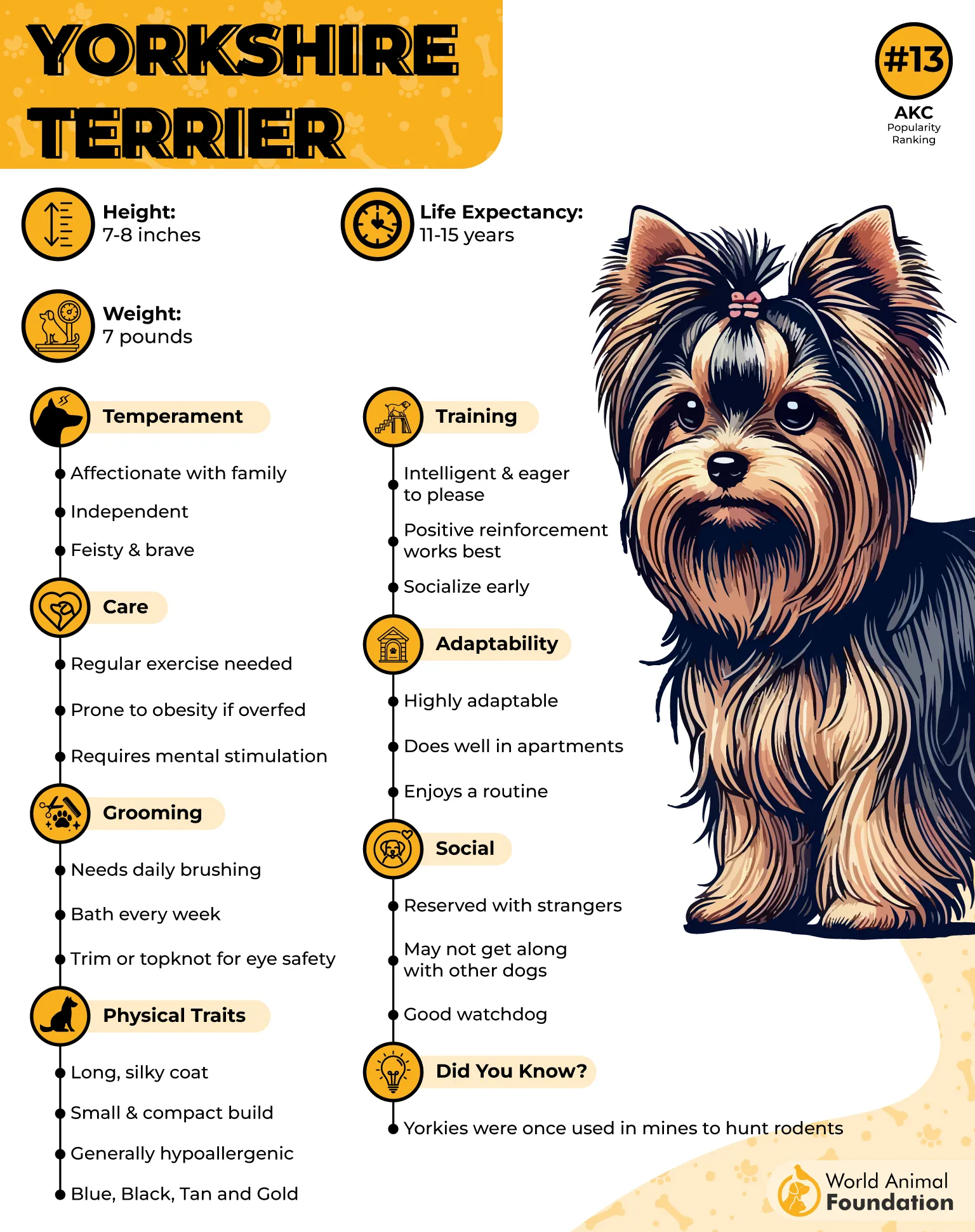
Yorkies are intelligent but can sometimes be a bit stubborn, so short, positive training sessions with plenty of praise and rewards work best. Their curious, outgoing nature makes them charming companions for owners who can offer time, patience, and affection.
Feeding & Nutrition Tips:
Choose an AAFCO-approved small-breed formula rich in protein and healthy fats.
Feed 2–3 small meals a day to prevent hypoglycemia, especially in puppies.
Opt for kibble designed to support dental health and reduce tartar buildup.
Avoid feeding table scraps to prevent digestive upset and picky eating habits.
Conclusion
Welcoming a dog into your home is one of life’s most rewarding experiences. Whether you choose a calm Whippet, a confident Yorkie, or any other beginner-friendly breed, understanding their needs and temperament is key to building a lasting bond.
With love, patience, and proper care, your first furry friend can become a joyful part of your family for years to come.


